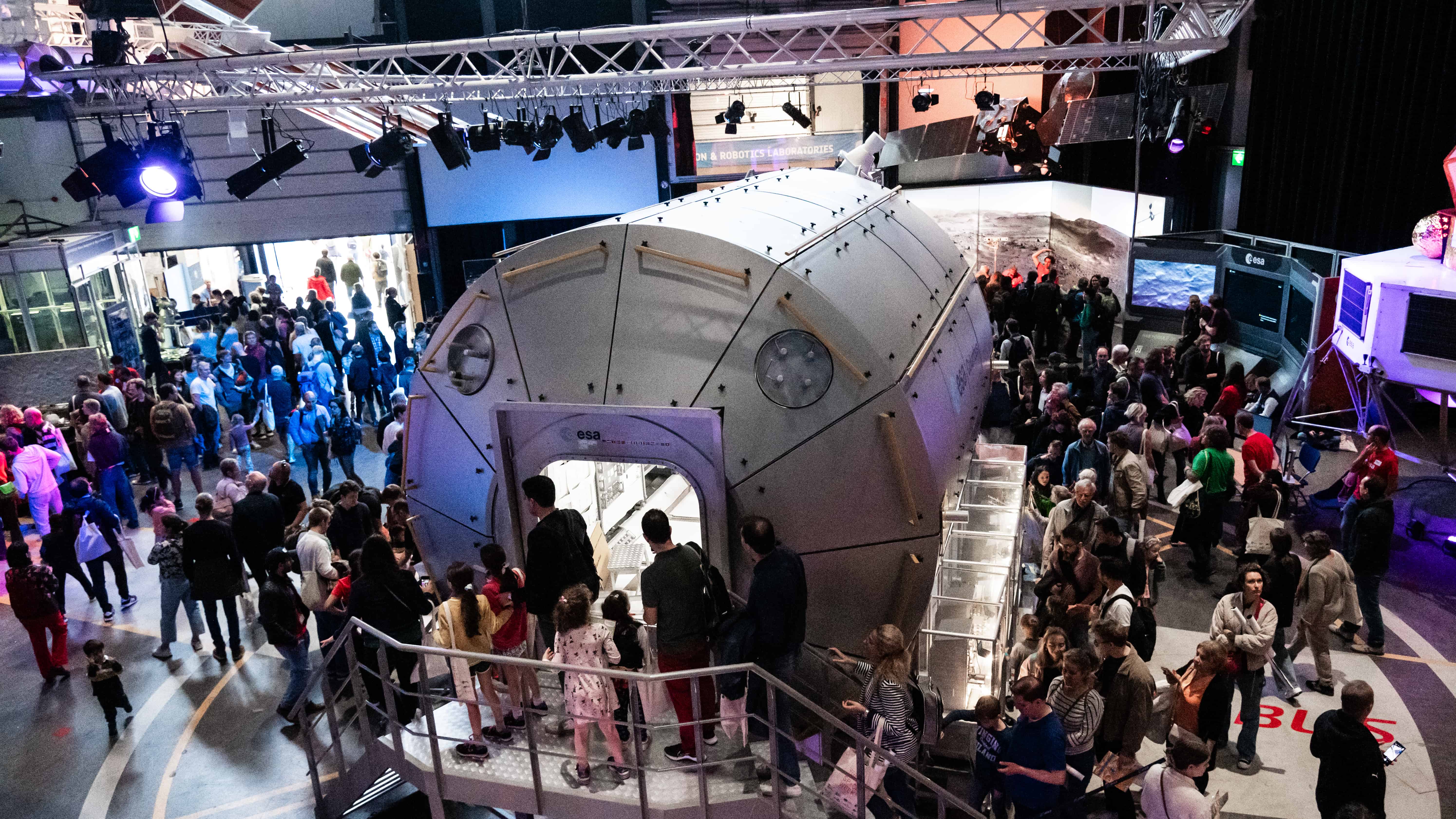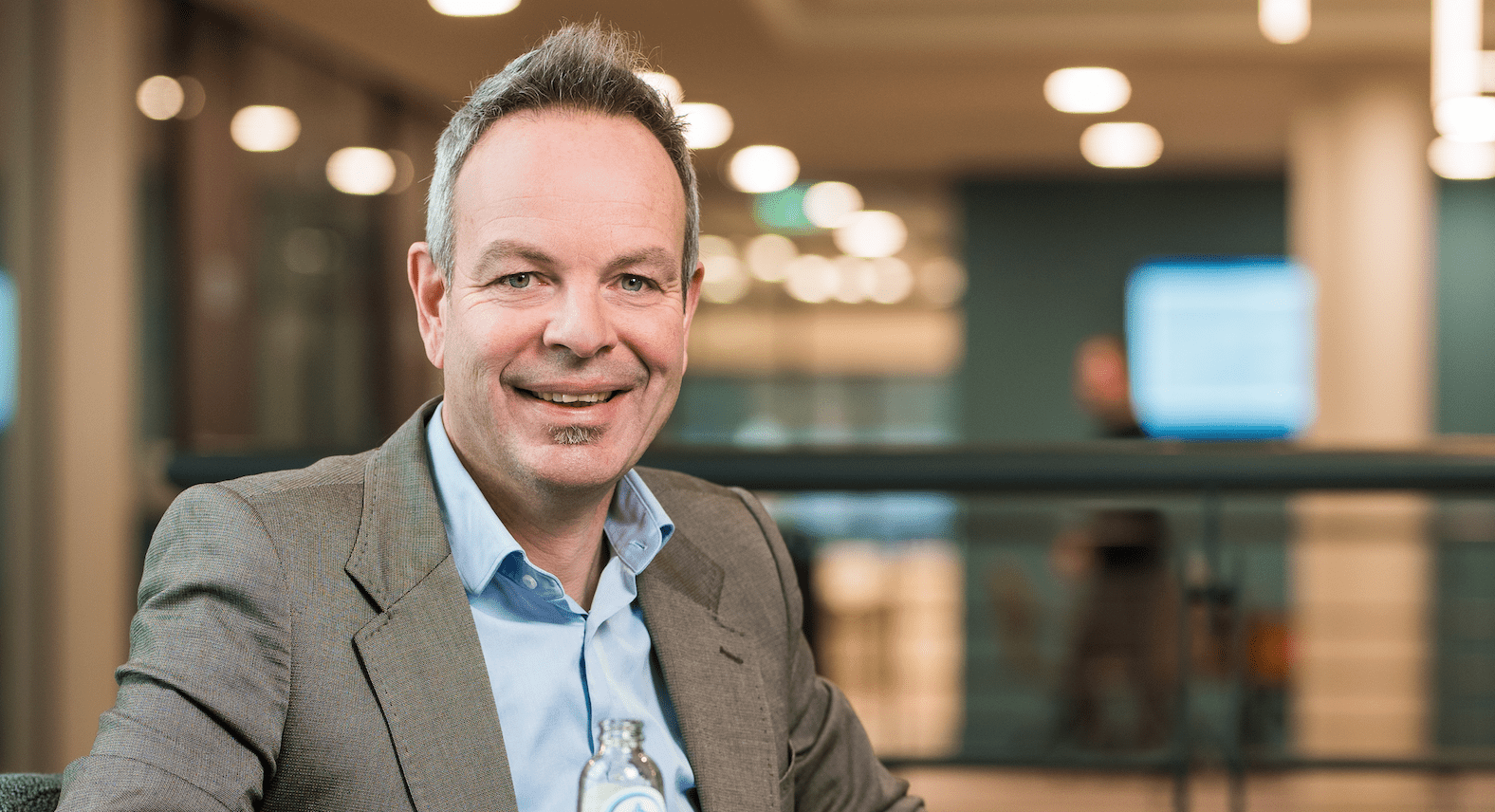
The Brainport region is doing slightly better than the rest of the Netherlands when it comes to children choosing a technical education – but that’s no reason to sit back. The lack of technical talent is still one of the biggest challenges to the continuity of the region’s success. Hence, the companies that depend on technically skilled personnel are doing everything they can to reverse the trend and attract more young technicians.
In the past ten years, one of the ways this was done was with an annual Dutch Technology Week. For the new edition of this feast of technology – scheduled for June 11 and 15 to 18 – not only have a few changes been made in terms of content, but a new name has also been chosen: Dutch Technology Festival. However, the common thread remains unchanged: it’s still all about technology promotion. “Because that’s still very much needed,” says Monique de Wit, who, as in past years, leads the organization of the festival. “The biggest difference compared to previous years is in the focus; where we used to have about sixty events in that week, at dozens of different locations, it’s all much more compact now and concentrated in one place: the Klokgebouw in Eindhoven.”
Gaming is high tech
The successful events of past years have remained in this year’s program: the High Tech Discovery Route (as a pre-event at six hotspots in the Brainpot region on June 11), Night of the Nerds, Quiz Night XL, and Mission Tech are going to return this year. “Those are the showpieces that we are sure will attract a lot of interest again this year. But on top of that, we’re launching an event that will be at least as successful: a day of gaming and e-sports. And that’s not just because that’s popular in itself, but also to show how much the software behind many games is also used within the high tech industry as digital twins to create simulations of machines that are under development or already functioning. In other words, we can show in a playful way how cool it is to build the technical skills needed in this sector.”

During the festival, the Klokgebouw will have to radiate fun in technology in everything. In addition to the aforementioned gaming and e-sports opportunities, there will be experience areas where everyone can play with technology to their heart’s content. Robots will serve as catering staff. There is an Arena where interesting conversations with students and experienced representatives from the tech sector are constantly taking place. “Everything is intended to show to young people how cool it is to work in the tech sector”, says Monique de Wit. “There are plenty of opportunities for a relevant and interesting study and a job in tech. That message is, therefore, central during Dutch Tech Fest. Here we show festival-goers that technology is fun and offers solutions to issues in important sectors such as healthcare, mobility, and sustainable energy. Once you’re aware that you can contribute to that, you can start combining two things: joyful, challenging work and meaningful results.”
Knowledge-driven society
In an ideal world, four out of ten children should choose a technical education, Lucas van Grinsven adds. “That would give us a healthy balance in our knowledge-driven society. But, unfortunately, we currently only get two in ten across all levels of education. And if you start zooming in, you can see that the really big shortage is mainly in vocational education. That’s where the real cause is of the screaming shortage of technically trained professionals that we’re facing now.”
Van Grinsven, in everyday life the Head of Communications & Community Engagement at ASML, took over from Frits van Hout last year as the chair of the Dutch Technology Festival’s Advisory Board. His main task is to bring technology to the attention of young people. “The most urgent problem, especially in our region, is filling the pipeline of technological talent. So we must continue to do everything we can to educate young people about the possibilities of this meaningful, valued, and job-secure work. The need for more talent will not disappear tomorrow either: our sector is still growing and that won’t change for years to come.”
Delta plan for engineering
Technology promotion is not something for just a week either. Van Grinsven’s colleague Marjolein de Hooge is working on it at a daily level within ASML. “We have technology promotion lessons for elementary schools, colleagues of ours give extra lessons in science subjects, and entire school classes come to our experience center. We really do everything we can to bring children into contact with technology. We also provide, for example, laptops or even office chairs for families who cannot afford them. Anything that can help to get things moving, we’ll take it on.”
The question then remains whether the effort suffices. Van Grinsven: “We are doing slightly better here in Brainport than in the rest of the country, so you could conclude that years of technology promotion have had some effect. But it is still not enough by a long shot. In fact, we could use a national Delta Plan for technology; only by structurally searching for solutions can we eventually fill the pipeline of talent. And the other way around: if we don’t succeed, the damage to society will be enormous.”
Whereas the Dutch Technology Week tried year after year to make events possible throughout the country, its successor is focusing primarily on Brainport. “Let’s prove our impact here first. If that’s successful, we can scale it up. The chance that you, as a pupil or student, will experience something related to technology here actually has to be 100%. All Brainport children should be introduced to technology. No one is excluded. It is extremely important that everyone can participate. Technology is not only for white people in their twenties. In fact, tech only has a future if it is inclusive.”
Minecraft
Just like Monique de Wit, Marjolein de Hooge expects a lot from the gaming area in the Klokgebouw. “This could well be the key because we all barely realize how attractive and impactful games are for the current generation of young people. And what’s important: through gaming, children develop qualities that we desperately need in technology. Minecraft players gain agility but also learn to look ahead. In addition, it provides a lot of mutual contacts, so you also learn to cooperate. That’s exactly why Minecraft is on the program of the Dutch Tech Fest. After all, if we can make it clear that having fun in gaming might also mean having fun in technical education, we are pushing the right button.”
Van Grinsven can only agree. “But even then, there is a task for us to show that connection. I recently visited a group of schoolchildren and asked them what they wanted to study, whereupon one said that designing games appealed to him because it was not so technical. See, if we can make it clear to these kids that a talent for gaming might also indicate a talent for engineering, then we’re starting to make progress.”








